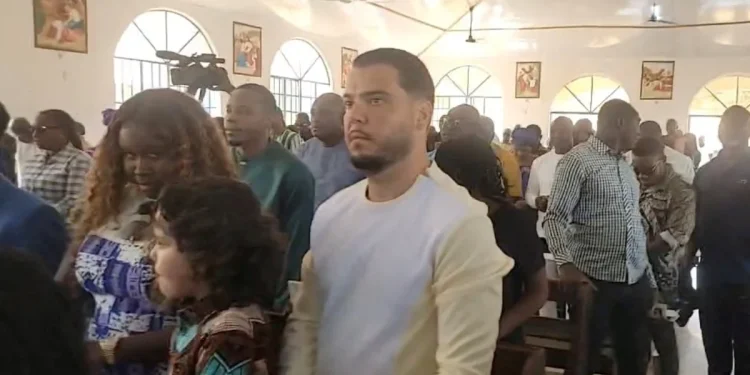By Hassan Osman Kargbo
A storm of controversy has erupted following revelations that the alleged Dutch drug lord, Jos Leijdekkers, is reportedly in Sierra Leone. The situation has left many Sierra Leoneans questioning the state of the country’s security sectors, governance, and border control, especially as images circulating online suggests that the wanted man may have entered the country with ease.
The growing concerns come on the heels of an official confirmation from Sierra Leone’s Minister of Information and Civic Education, Chernor Bah, who stated that the Dutch Government has formally requested the extradition of Jos Leijdekkers.
According to Bah, the request was received Monday, February 11, 2025, after being sent through Sierra Leone’s embassies in Ghana and Brussels on February 6, 2025.
The diplomatic implications of this case, coupled with the perceived weakness in security mechanisms, have triggered an outcry among citizens.
In addition, for many Sierra Leoneans, the bigger question remains how did an internationally wanted fugitive manage to enter the country undetected? Some argued that Sierra Leone has become an easy hiding ground for criminals due to poor border security and corruption within immigration and law enforcement agencies.
“We keep hearing about drug cartels and fugitives finding their way into our country. How is that even possible if our security system is functioning properly?” asked Ibrahim Sesay, a social commentator based in Freetown. “Our borders are porous, and this case has just proven it.”
Others believe that a lack of proper screening at airports and border points has made it easier for criminals to infiltrate the country. Musa Kamara, a university student, said; “We are struggling with poverty, unemployment, and failing healthcare, yet our government cannot even secure our borders? How did someone internationally wanted just walk in?”
Also, Despite the gravity of the allegations, the Sierra Leonean government has not provided a clear explanation of how Leijdekkers entered the country undetected. The silence from law enforcement agencies and immigration officials has further fuelled public frustration and speculation.
“We need answers!” exclaimed Abdul Rahman Bangura, a senior citizen. “How did this man enter Sierra Leone? Who facilitated his stay? This case shows that our national security is weak, and we are not safe in the country. We need more enforcement in our borders.”
Furthermore, many citizens now demand urgent reforms in Sierra Leone’s border control and security systems to prevent future breaches. Political analyst Peter Koroma stated, “This is not just about one man; this is about how easily criminals can exploit our weak security system. If we do not act now, more fugitives will use Sierra Leone as a safe haven.”
Opposition leaders have also criticized the administration, calling for a thorough investigation into immigration failures that allowed Leijdekkers’ entry. They argued that unless the security apparatus is strengthened, Sierra Leone risks becoming a hub for international criminals.
With the Dutch government having submitted an official extradition request, the ball is now in Sierra Leone’s court. However, the real challenge for the government is not just handling this one case but ensuring that the nation’s security loopholes are addressed to prevent similar incidents.
For ordinary citizens, this issue extends beyond extradition. It has become a matter of national dignity, security, and the broader question of whether their country is capable of protecting its borders and people.
As the government deliberates on its next steps, Sierra Leoneans remain on edge, demanding transparency, accountability, and an urgent reassessment of security measures to ensure their country does not remain vulnerable to criminals and fugitives.













